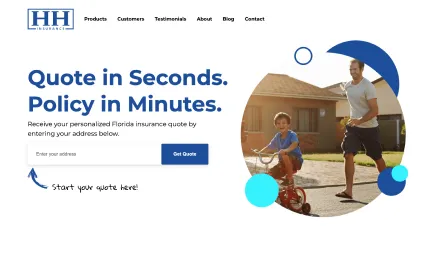Digital Marketing Manager

The Digital Marketing Manager at Red Shark Digital is responsible for helping the agency's clients grow their businesses through effective digital marketing strategies. The manager works to deliver the best digital marketing solutions available by staying up-to-date with the latest trends and tactics in the industry.
Red Shark Digital is a full-service marketing agency, and the Digital Marketing Manager collaborates with other team members to create comprehensive marketing plans for clients. In this role, the manager must be able to analyze data and interpret results to make informed decisions about how to optimize campaigns for maximum impact.
To succeed in this role, the Digital Marketing Manager must have a deep understanding of the digital marketing landscape, including SEO, PPC, social media marketing, email marketing, and more. They must be able to communicate effectively with clients to understand their unique needs and goals and develop marketing strategies that align with those objectives.
The Digital Marketing Manager at Red Shark Digital is an integral part of the team, helping to build the agency's reputation as a leader in the digital marketing industry. They are committed to delivering exceptional results for clients and are constantly looking for ways to improve their skills and knowledge to stay ahead of the curve.
Digital Marketing Manager
Frequently Asked Questions
A keyword strategy for SEO is a plan and process for incorporating specific keywords throughout a website to improve organic search visibility and traffic. There are a few key components to consider when developing a keyword strategy:
- Identifying relevant keywords and search queries
- Assessing keyword competition
- Determining keyword placements
Identifying relevant keywords and search queries is the first step in developing a keyword strategy. You can use a variety of tools, such as Google AdWords Keyword Planner and Google Trends, to research which keywords are being searched for most often. You can also look at your website’s analytics to see which keywords are driving the most traffic to your site.
Once you’ve identified relevant keywords, you need to assess the competition for each one. This can be done by searching for the keywords in Google and looking at the results. If there are a lot of well-established websites ranking for the keyword, it will be difficult to rank for it. However, if there are only a few results, or if the results are mostly from low-quality websites, you may have a better chance of ranking for the keyword.
Finally, you need to determine where to place your keywords on your website. Keywords should be included in the title, meta tags, header tags, and body text of your website. However, you should avoid keyword stuffing, which is the practice of cramming as many keywords into your website as possible. This will not only irritate your website visitors but it will also likely result in a penalty from Google.
By following these steps, you can develop a keyword strategy that will help you improve your website’s organic search visibility and traffic.
Skills for content strategy involve understanding how to develop and manage content to meet the business's and its customers' needs. This includes developing a content strategy, managing content creation and distribution, and measuring the results of content marketing initiatives. To develop an effective content strategy, you need to understand your audience and what they need deeply and want from your business. You also need to be able to create compelling and engaging content that meets those needs. And finally, you need to be able to measure the results of your content marketing initiatives to continue improving your content strategy over time.
Inbound marketing is a strategic marketing approach that focuses on attracting customers to your company or brand through various online channels. These channels can include your website, blog, social media, and email. The goal of inbound marketing is to draw in customers who are already interested in what you have to offer, rather than actively seeking them out.
Inbound marketing is an effective way to reach your target audience and generate more leads and customers for your business. It can be used as a standalone marketing strategy, or it can be used in conjunction with other marketing initiatives.
If you’re looking to attract more customers and grow your business, inbound marketing may be the right strategy for you.
There is no one-size-fits-all answer to this question, as the best competitive strategy will vary depending on the industry and market. However, there are some key steps that all businesses should follow when trying to create a competitive strategy.
1. Conduct a thorough market analysis. This step is crucial in understanding the landscape in which your business operates. What are the key trends? Who are your major competitors? What are their strengths and weaknesses? What is your target market?
2. Develop a unique selling proposition. This is what will make your business stand out from the competition. What is it that you do better than anyone else?
3. Create a marketing strategy. This should include both online and offline marketing tactics. Your goal is to get your unique selling proposition in front of as many potential customers as possible.
4. Focus on customer service. This is one area where you can differentiate your business from the competition. If you provide exceptional customer service, people will be more likely to choose your business over others.
5. Constantly monitor your competition. Keep an eye on what they are doing and adjust your strategy accordingly.
By following these steps, you can develop a competitive strategy that will help your business succeed.
There are several reputation marketing strategies that businesses can use to improve their online presence and reputation. One common strategy is to create and maintain a strong social media presence. This can be done by regularly posting engaging and informative content, responding to customer queries and reviews, and monitoring what is being said about the company online.
Another reputation marketing strategy is to make it easy for customers to leave positive reviews. This can be done by providing links to review sites on the company website and sending follow-up emails after a purchase asking for feedback. Incentives can also be offered for leaving positive reviews, such as discounts or coupons.
Finally, it is important to address negative reviews and feedback promptly and professionally. By responding quickly and addressing any issues raised, businesses can show that they care about their customers and are committed to providing a positive experience.
Our search advertising strategy is designed to reach potential customers who are actively searching for products or services like ours. We use relevant keywords and target our ads to appear in search results for those keywords. We also use negative keywords to exclude searches that are not relevant to our products or services. In addition, we use geo-targeting to show our ads to searchers in specific locations.
There are three key elements to creating a lead nurturing strategy:
1. Segmentation: Dividing your leads into groups based on factors like demographics, interests, or behaviors. This helps you create targeted content that speaks to each group’s specific needs.
2. Timing: Knowing when to send each segment of leads your content. This ensures that your messages are timely and relevant.
3. Personalization: Creating content that is personalized to each lead. This could include using their name, company, or other information you have about them.
By following these three key elements, you can create a lead nurturing strategy that will help you build relationships with your leads and eventually convert them into customers.
An inbound strategy is successful when it helps a company attract strangers, turn them into leads, and then convert those leads into customers. There are a number of ways to execute an inbound strategy, but a few key components are essential: 1. Identify your target audience.
2. Produce content that is interesting and relevant to your target audience.
3. Distribute your content through channels that your target audience is likely to use.
4. Use calls to action to encourage your target audience to take the next step.
5. Convert leads into customers through effective sales and marketing processes.
6. Analyze and optimize your inbound strategy on an ongoing basis.
By following these steps, you can develop an inbound strategy that is successful in attracting and converting new customers.
Experience the benefits of working at Red Shark Digital
When you work with us, we work for you. We are a team full of collaborators, always eager to assist and help others grow.
As long as you didn't just roll out of bed, wear what makes you comfortable.
Weekly grocery orders mean a kitchen full of snacks. We're big snackers here.
Our productivity doesn't depend on where we sit. We WFH Mondays and Fridays!
Shouting out your team each week makes everyone feel warm and fuzzy.
Share with the team what you learned this week, and they'll learn something too.
Access to platforms and tools within the agency that our team uses for work.
The shelves in our office are about to fall off from the weight of our trophies. ;)
Baseball games, bowling, pumpkin patches, you name it. We love to hang together!
Life happens, we get it. Our generous PTO policy provides you the time you need.
Need to purchase a course to expand your brain? You want it, you got it.

While we regularly hire for this role, please note we are not actively seeking candidates at this moment. Feel free to submit your application for future consideration.

















.svg)






